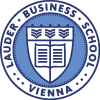[vc_row][vc_column width=”1/1″][vc_column_text]
Dipl. Ing. Annette Hexelschneider, teaching Managing Knowledge and Intellectual Capital in the IML master’s program at Lauder Business School, has recently published the article “Wissenstransfer: Weniger ist mehr!” (Knowledge Transfer: Less is more) in the journal for top executives “Zeitschrift für Wissensmanagement” (Journal for Knowledge Management), the first German magazine exclusively covering knowledge management. Moreover, she has recently presented her newly developed Toolbox for knowledge transfer at the IMEX 2017 exhibition in Frankfurt, Germany. In an interview with the LBS Marketing team, she reveals details about her work as well as her teaching experience at LBS.
[/vc_column_text][vc_separator color=”grey”][vc_row_inner][vc_column_inner width=”1/1″][vc_single_image image=”24186″ alignment=”center” border_color=”grey” img_link_target=”_self” img_size=”700×600″][/vc_column_inner][/vc_row_inner][vc_separator color=”grey”][vc_separator type=”transparent” position=”center”][/vc_column][/vc_row][vc_row][vc_column width=”2/3″][vc_column_text]Q1: What is the recently published article about?
Today there are many strategies and formats for knowledge transfer. However not much attention has been given to the micro-level of the transferred knowledge – the way knowledge is being selected and presented. Seeing the need for this through my work with various organizations, I transferred what I use in teaching to knowledge transfer: didactical reduction. The article proposes a strategy to apply didactical reduction in knowledge transfer in order to transfer only relevance, and it presents some useful transfer formats. The sentence from the Nobel laureate for Economics, Herbert Simon (1971) guided the work: “Information eats up the attention of its receivers. Hence a wealth of information creates attention poverty.”
[/vc_column_text][vc_separator type=”transparent” position=”center”][/vc_column][vc_column width=”1/3″][vc_separator type=”transparent” position=”center”][vc_separator type=”transparent” position=”center”][vc_separator type=”transparent” position=”center”][vc_single_image image=”24179″ alignment=”center” border_color=”grey” img_link_target=”_self” img_size=”full”][vc_column_text]
Copyright: Thomas Lieser
[/vc_column_text][/vc_column][/vc_row][vc_row][vc_column width=”1/1″][vc_column_text]Q2: What is the Toolbox and how does it work? What is its aim?
In my work I quite often come across the demand for real and useful knowledge transfer at professional events. As I found more and more ways to enhance knowledge transfer at these events I thought about introducing a new, systematic approach. I structured strategies, formats and tools into: (1) before, (2) at, (3) after the professional event, and built a Toolbox. With the Toolbox one can start using only one method to gain experience or test one method for each phase. With lessons learned one can proceed implementing knowledge transfer more thoroughly. The aims are:
- really doing knowledge transfer at events*,
- meeting the demand of participants’ to be more involved in shaping the event and to learn more actively -> creating suitable “learning rooms” and “learning dialogues”,
- improving the teaching and learning professional event.
*Quite often I read news about knowledge transfer events, but what I see is not real knowledge transfer, which is more than just communication.
[/vc_column_text][vc_separator type=”transparent” position=”center”][/vc_column][/vc_row][vc_row][vc_column width=”1/1″][vc_column_text]Q3: Recently you presented the Toolbox at the IMEX 2017. What was the general reception of the audience?
I was happy to see that the interest was great. I had more interested participants than we had chairs, headsets and hand-outs at the Communication Cube of the German Convention Bureau where the seminar took place.
[/vc_column_text][vc_separator type=”transparent” position=”center”][/vc_column][/vc_row][vc_row][vc_column width=”1/1″][vc_column_text]Q4: What is your impression about public /corporate interest in knowledge management topics?
My feeling is that the public interest is “indirectly” high. As soon as you search for knowledge too long and you thought you had it at your fingertips, you realize that you need to improve your personal knowledge management. There are many apps that help and raise even more interest in pursuing it. Corporate interest is clearly there given the demographic change. However, I have the feeling that quite often people feel overwhelmed with what knowledge management could mean and postpone looking into it. Yet I think “you cannot not manage knowledge”. So quite often you already do it. I often use prototyping as in Design Thinking/Service Design. Why not take one small knowledge management/transfer step and see what comes out of it. Take this step with a “low hanging fruit” of potential success and build upon it.
[/vc_column_text][vc_separator type=”transparent” position=”center”][/vc_column][/vc_row][vc_row][vc_column width=”1/1″][vc_column_text]
Q5: How do the LBS students perceive the importance of knowledge management? Do you incorporate your research also in the classrooms?
As a board member of the Society for Knowledge Management in Germany & Austria I am very grateful that LBS gives its IML students the chance to learn what knowledge management and intellectual capital management mean and how important it is also in the business world. I try to show the students that every small step counts and I like that the LBS students apply methods and formats creatively during the lessons. In the next term I plan to put an emphasis on knowledge transfer and to include didactical reduction and professional knowledge transfer events.
[/vc_column_text][/vc_column][/vc_row]


Recent Comments